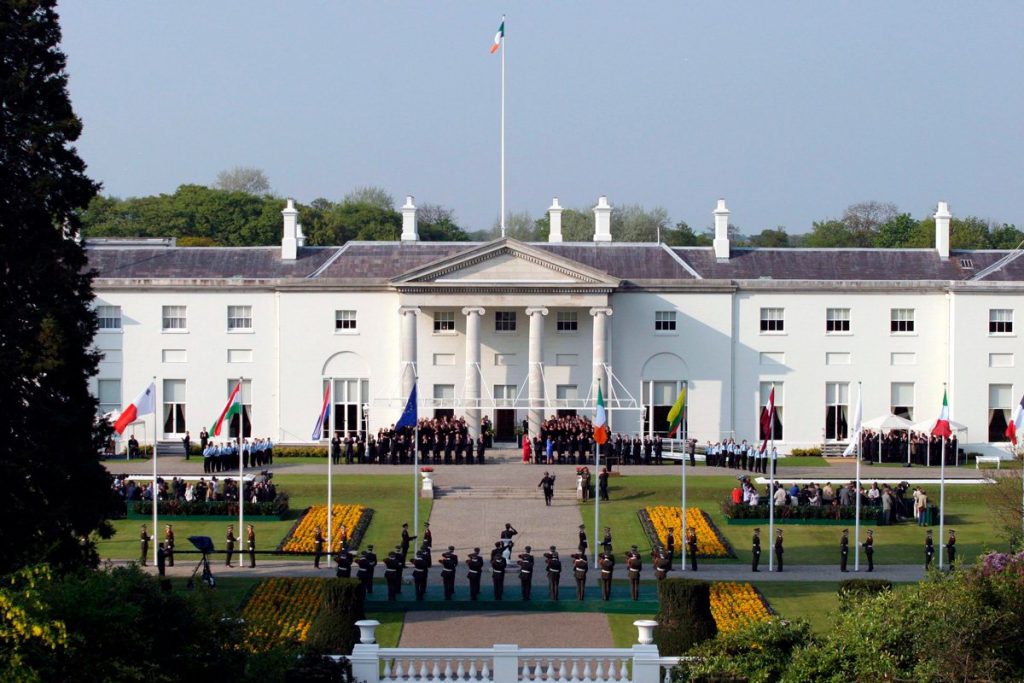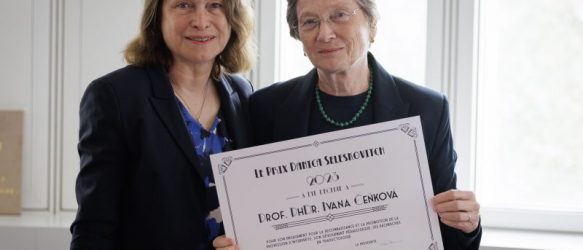As part of the seminar “Translation of Poetry” led by doc. Mariana Machová from the Department of Anglophone Literatures and Cultures at CU FA, Markéta Novotná, Maxmilián Filip, and Stanislav Cincibuch co-translated a poem by a prominent Irish poet commissioned to write a poem for the accession ceremony in 2004. The video for the Czech translation was produced at the Irish Embassy.

Seamus Heaney wrote the poem “Beacons at Bealtaine” and recited it in person at the 2004 accession ceremony of the European Union, of which Ireland held the presidency at the time. In the autumn of 2023, the Irish Embassy in Prague asked doc. Mariana Machová to translate the poem. For the twentieth anniversary of EU enlargement in 2024, the poem was translated into the languages of all ten countries that joined the EU back then, including the Czech Republic. “Originally, I was supposed to translate the poem myself, but after the drastic end of the winter semester at the Faculty of Arts, I had an informal meeting with my students of the Translation of Poetry seminar, and some of them asked if the seminar could continue in some form even during the exam period, which was so significantly overshadowed by the December tragedy,” doc. Mariana Machová explains the background of the translation’s creation. “We believed that devoting ourselves to the main reason why we are all at the faculty made profound sense at the time. I suggested that we take on the translation of Heaney’s poem together, and the Irish Embassy representatives enthusiastically accepted and supported the idea.”
What followed was a series of in-person and online meetings over the poem, discussions, and sharing of documents with various drafts and solutions that gradually crystallized into the final form. “I have to emphasise that this was an immensely challenging text in terms of translation. It is a villanelle, a form with a complex rhyme scheme and regularly repeated rhyming words in a fixed five-foot jambo. The final Czech translation fully preserves the form of the original in accordance with the Czech translation tradition.” doc. Machová adds. “The experience with creative collaboration on the translation was also new to me and, at first, I was not sure if it would work at all, but the process and the result exceeded my expectations, for which all three student co-translators, Markéta Novotná, Max Filip, and Stanislav Cincibuch, deserve a huge thanks,” she concludes.
You can read the full poem in Czech here, in the original here.







